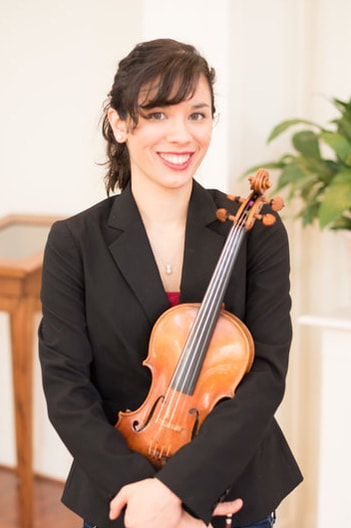1. Private Lessons. If you've been learning music in an ensemble class setting, the summer can be the perfect time to explore private lessons. Group classes and school orchestra are good, but the way to really make individual progress is by taking private lessons. You'll have one teacher's attention completely devoted to you, able to make custom-tailored suggestions and lesson plans just for your playing. If you've been taking private lessons, you might ask your teacher if you can have two lessons a week to intensify your study. Summer is also the time when most teachers have openings for students, since anyone graduating will just have left. (See the Studio page of my website if you live in the DC area and might be interested in studying with me!)
2. Music Day Camps. Many organizations run music-themed day camps. Music camps and workshops are generally a week or two weeks long. It's a wonderful way to make new friends and to learn more about your music! In the DC area, we have some wonderful opportunities - links below!
Levine School of Music Summer Camp (Locations in Arlington, DC, and Bethesda)
Potomac Music Academy Ovations Summer Strings Academy (Fairfax, VA)
See this list of opportunities for students in Virginia:
3. Long-Term Music Camps
For older students starting to get more serious about their playing, a longer festival or workshop where you stay there for its duration might be the right choice. A month-long or even longer summer festival can be especially helpful for teens in their early high school years debating whether or not music school might be the right choice for them in college. The application process usually starts in late fall or early winter. There are several options around the country, and I am listing ones that are primarily in driving distance of the East Coast, along with the most well-known programs. This is by no means a comprehensive list and I urge you to also look for other camps and programs that might benefit your studies.
Aspen Music Festival and School (Aspen, CO)
For the most serious and dedicated music students at the highest level. Primarily for college-age students, but some younger students are admitted.
Interlochen Arts Academy (Northwest Michigan, near Traverse City)
One of the best arts education schools in the country. Summer programs for students of all levels in grade 3 and higher, ranging from intermediate to extremely advanced.
Credo Chamber Music (Oberlin, OH)
For students ages 13 - 23. Emphasis on chamber music.
Virginia Governor's School Summer Residential Program (Radford, VA)
This month-long program functions through the Virginia public school system and holds auditions and applications annually. For high school students.
National Symphony Orchestra Summer Music Institute (Washington, DC)
For students ages 15 - 21. A four-week intensive orchestral experience at the Kennedy Center.
Brevard Music Center (North Carolina)
For high school and college students.
Eastern Music Festival (Greensboro, NC)
Comprehensive music festival for students ages 14 - 22 that also features special programs for children as young as 3.
4. Summer Concerts
Summer is also the time of wonderful outdoor concerts! I love sitting and listening to music outside on a beautiful summer night. Orchestras frequently retreat to their "summer" concert halls - Tanglewood in Boston, Blossom in Cleveland, and Wolf Trap for the National Symphony. I grew up in the Washington, DC area so my family and I were blessed with many different concert opportunities. A few are listed below...
Kennedy Center Millennium Stage
Free concerts at 6 pm. Every day of the year.
A Capitol Fourth
United States Air Force Band (has strings and singers, too!)
Jazz in the Garden
Wolf Trap Foundation for the Performing Arts
5. Traveling with your instrument.
A few little logistical issues if you take your instrument with you on vacation. As a violin teacher, I highly recommend making every effort possible to bring your instrument. Even if a student only manages to play 10 minutes a day, that little bit will help maintain your skill level. It's very hard to get back into shape after you take a practice break for more than a few days.
- When flying with your violin, never check your instrument . The higher pressure, altitude, and being tossed around the cargo hold can cause irreparable damage to your instrument. Whatever the gate agent and flight attendants may say, your violin will fit in the overhead compartment. Even on the smaller planes, my violin case always fits. If the overhead compartments are full, ask if they can store your violin in the attendants' locker. I repeat, never check your instrument. Make sure you make arrangements to board the plane early to ensure that there is room in the overhead compartment. You are legally permitted to carry your violin on board - in addition to a personal item and a carry-on bag. See the official TSA policy here.
- Never leave your violin in a hot car. If you're on a road trip or even just running errands around the neighborhood at home, take the violin into stores, restaurants, and rest stops with you. Heat and humidity are extremely bad for violins.
- Create a built-in security system. When traveling with your violin, always keep it in physical contact with you. Rest your arm on it as it sits beside you. If it's on the floor, keep it between your feet or have at least one foot next to it. Accustom yourself to always being in contact with your violin, so that if you leave it somewhere or it gets picked up by someone else, you'll realize it immediately and be able to take action.
- Insure your instrument, if you own it. Musical instrument insurance is available through a number of organizations, including the American String Teachers' Association (which you can join as a student).
That's it for now! Have a great musical summer!

 RSS Feed
RSS Feed